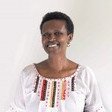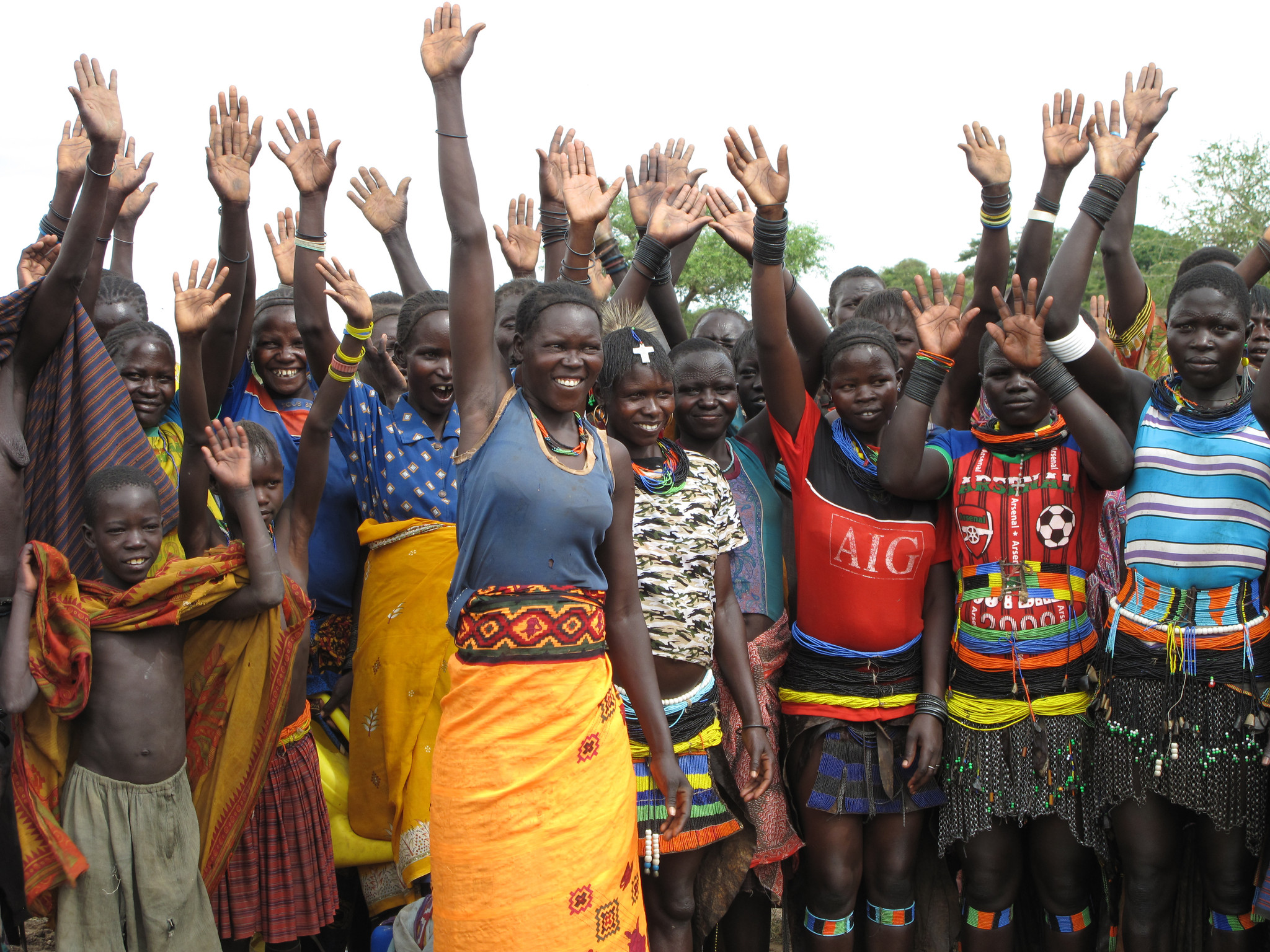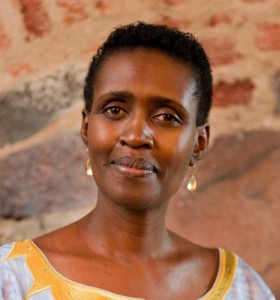发展项目2013年6月18日
The Power of People against Poverty

Winnie Byanyima
Winnie Byanyima是國際樂施會總幹事。 在婦女權利,民主治理和建設和平等方面的工作,她都具領導地位。

During a meeting with women from Nasapir Village, Uganda, who have gathered to plant tree seedlings, Savio Carvalho, Oxfam's climate change advisor for the south, said the hard part was looking after the saplings to make sure they would grow. He asked the women if they were willing to put in the effort. They all put up their hands. Photo: Caroline Gluck / Oxfam
by Winnie Byanyima, Executive Director, Oxfam International
I feel very privileged to have joined Oxfam International just as we adopt our new strategic plan, called “The Power of People against Poverty”. To me, that is the right way to think about the work of Oxfam and its partners around the world.
There are a billion poor people in the world today. And there will be two billion people in extreme poverty as the world population grows from seven to nine billion in the next generation. Oxfam invests in changing those odds on poverty.
The real change will come through ordinary people. People, and especially women, when they find their voice and claim power, will make a different world. Oxfam wants to contribute to empowering people living in poverty so that they can transform their life situations.
When we speak about power, we mean women and men exercising their right to be heard, taking control of their own destiny and demanding justice. We mean women and men holding their governments and companies accountable.
This is at the core of Oxfam’s new strategy. An understanding – based on seven decades of effort to relieve famine, end poverty and strive for more equality and justice – that results come when people are empowered. That is why, in a clear, simple plan with six goals, two of them are designed to directly strengthen the power of people.
The first – that I hold especially dear – is that all of Oxfam’s work is through the prism of women’s rights. By asserting their leadership, women can enhance their own wellbeing and gain the benefit of the contribution that women and girls make to societies and economies.
The second is the right to be heard, or what we call “voices for choices”. The very act of demanding and exercising rights and participating in public decision-making marks progress for those people who are excluded into the margins of society. Oxfam works with women and men to exercise their rights and get their issues onto public policy agendas.
Both these goals form a backdrop to our other four priorities: saving lives in humanitarian disasters and preparing for crisis; ensuring there is enough financing to spur human development; sustainable food for all; and a fair sharing of the world’s natural resources.
Why these six goals? Well, the world has changed. And it is still changing. We’ve seen the world make giant strides over the past 20 years to pull 660 million people out of poverty and to significantly increase life expectancy and average incomes in many countries. We celebrate this. And we learn.
When we look underneath these fantastic achievements, we see some serious fault-lines. None of them is inevitable.
Poverty is rising with population growth. Climate change will raise global temperatures by two degrees or more, which will cripple some food systems and bring weather-related crises. Ninety-seven per cent of poor people continue to live without social safety nets and half of all poor people could be trapped in fragile or conflict-riddled states. Meanwhile, individuals and companies continue to hide trillions of dollars from being taxed, amid huge over-consumption of natural resources.
Poverty and inequality have many causes, and Oxfam works through many inter-related channels and approaches to address them. The world has the knowledge and means to resolve global poverty and inequality. But first there needs to be a transformation in the power dynamics between people, governments and industry.
Oxfam will still be there providing services, tools and training, and emergency aid when it is needed. But we need to leverage this work in order to help change the policies and practices that cause inequality and exclusion in the first place.
More and more we will concentrate on forging new alliances, providing new evidence, opening doors to decision-makers, helping to get rid of bad policies and practices, and supporting people to seize those moments when change is most likely to happen. It is all about leveraging the power of people to overcome poverty.
 Winnie Byanyima has been the Executive Director of Oxfam International since May 2013. Read more about her appointment and background here.
Winnie Byanyima has been the Executive Director of Oxfam International since May 2013. Read more about her appointment and background here.
